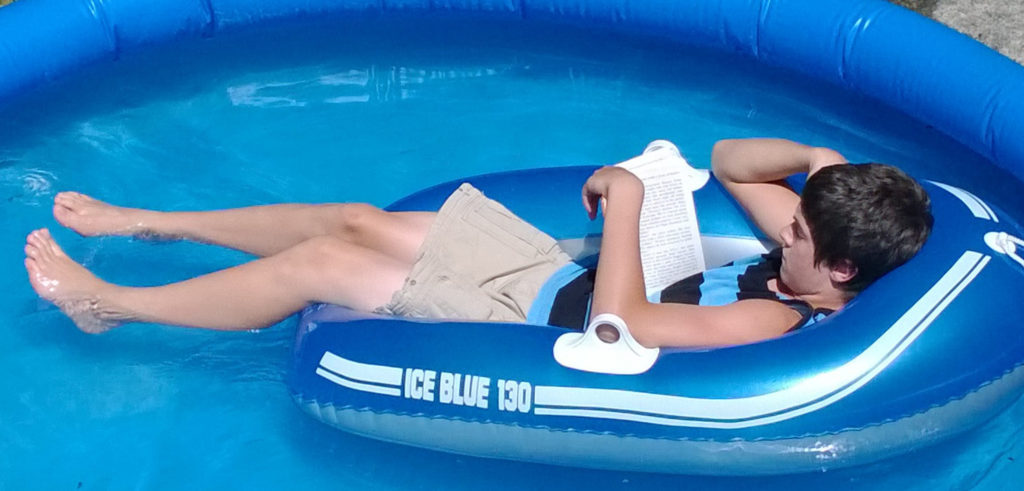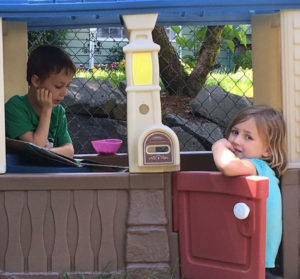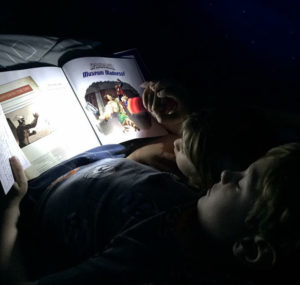As Christians, we know the value of living balanced lives, which includes a healthy balance between work and rest. Work is nothing without leisure, nor leisure without work, and both are meant for our good and God’s glory. The ancient philosophers knew that one of the hallmarks of an educated man was that he knew how to cultivate his own company through reading and thought. The Providence reading program is designed to teach students to be good readers and thinkers while also giving them the skills and the desire to become life-long readers. To that end, we invite students to read books outside our curriculum as they enjoy the long, lazy days of summer.

Each summer Providence puts out a recommended reading summer reading list by grade level from kindergarten to twelfth grade. The teachers and staff that compile the list select books that would cause the students to grow–to grow in knowledge, in imagination, in wisdom, in empathy, and in character. Some titles were published when the faculty and staff were themselves students, and many were written long before. Being exposed to a body of quality literature in common with a student’s parents, teachers, and grandparents gives him or her an important touchstone for judging literary merit. The books on this list are stories that have stood the test of time and will continue to do so.
Each title on the list will add to your child’s knowledge of proper English. From picture books, to graded readers, to chapter books, these volumes are full of age-appropriate vocabulary, with just enough new words to stretch the reader’s English comprehension. Reading good literature is a primary method for developing a strong vocabulary. If your student is up for the challenge, encourage him or her to actively search out unknown words within the text and to look them up in a dictionary or online.
 Historical fiction titles are well-represented on our list. This genre either reinforces the various time periods your student studied or lays a foundation for those he or she will study at Providence. The “story” in history is what makes it most memorable, and looking at history through the eyes of a literary character brings history to life as no textbook can. It provides the student with an intimate knowledge behind the facts of the historical event and allows the student to see how wars, revolutions, explorations, etc., affected common people.
Historical fiction titles are well-represented on our list. This genre either reinforces the various time periods your student studied or lays a foundation for those he or she will study at Providence. The “story” in history is what makes it most memorable, and looking at history through the eyes of a literary character brings history to life as no textbook can. It provides the student with an intimate knowledge behind the facts of the historical event and allows the student to see how wars, revolutions, explorations, etc., affected common people.
The biographical titles on the list also contribute to the richness of future historical study. Just as having a family friend who lives in a different state or country will make that location more relevant, reading biographies of figures throughout history teaches your student the grammar of history. When kindergartners or first-graders read about Abraham Lincoln and learn about his early life, then in sixth grade study the Civil War and recite “O Captain My Captain” by Walt Whitman, they already have a good acquaintance with the man, and the historical study becomes poignant, personal.
There are many contemporary fiction titles on the list. In addition to literary worth, most of these were selected for the strong character demonstrated by protagonists. When these people encounter tragedy or dilemmas, they do their best to make good decisions. Observing this process of decision-making and consequences through literature is something that allows your student to grow in wisdom. Some of the stories, especially those in third-grade and up, do contain sad events. By experiencing tragedy through the main character, the student also has a chance to grow in empathy.
Folklore, fairy tales, science fiction and fantasy are included to help your student explore imagination and creativity. These titles are also well-written, with wonderful vocabulary and great demonstration of character. By reading fantasy, students see the process of world-building in the hands of an author and better understand the creative process of the master Creator. However, it is important to note that even in these exotic worlds, there are problems, there is sin, and there is no perfection. Reading speculative fiction will help your student see that while imagination and scientific innovation can accomplish great things, they cannot achieve Heaven on Earth, nor overcome sin, and technology and magic can never replace our need for the Savior.
 Primarily, these titles were chosen according to literary worth. In her book on classical education, The Question, Leigh Bortins defines quality literature as “books that accurately depict humanity in all of its glories and failings so that the reader is forever changed by the experience of sharing in the book.” The selections here give your student a strong foundation for the study of great literature in secondary school.
Primarily, these titles were chosen according to literary worth. In her book on classical education, The Question, Leigh Bortins defines quality literature as “books that accurately depict humanity in all of its glories and failings so that the reader is forever changed by the experience of sharing in the book.” The selections here give your student a strong foundation for the study of great literature in secondary school.
The final ingredient in our selection process was pleasure. Bortins also notes in The Question: “The best books for children and teens are those that you would want to read again and again as an adult.” Some of the titles on the list will appeal to the imagination, some will stimulate the intellect, some are funny, some scary, some mysterious. Not everything on this list will appeal to every student. However, each book here was chosen for its potential to be read more than once, and each should, at some level, be a true pleasure to read.